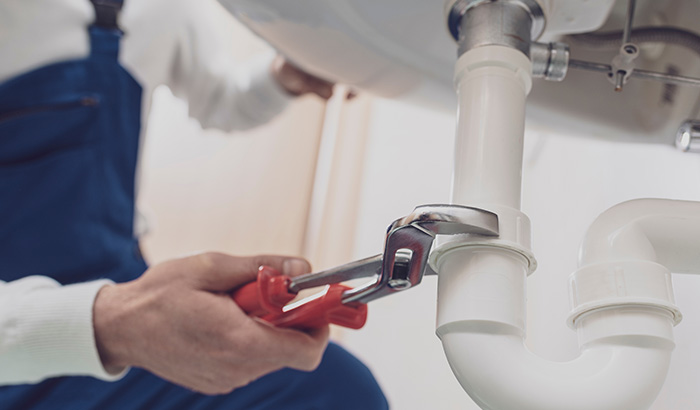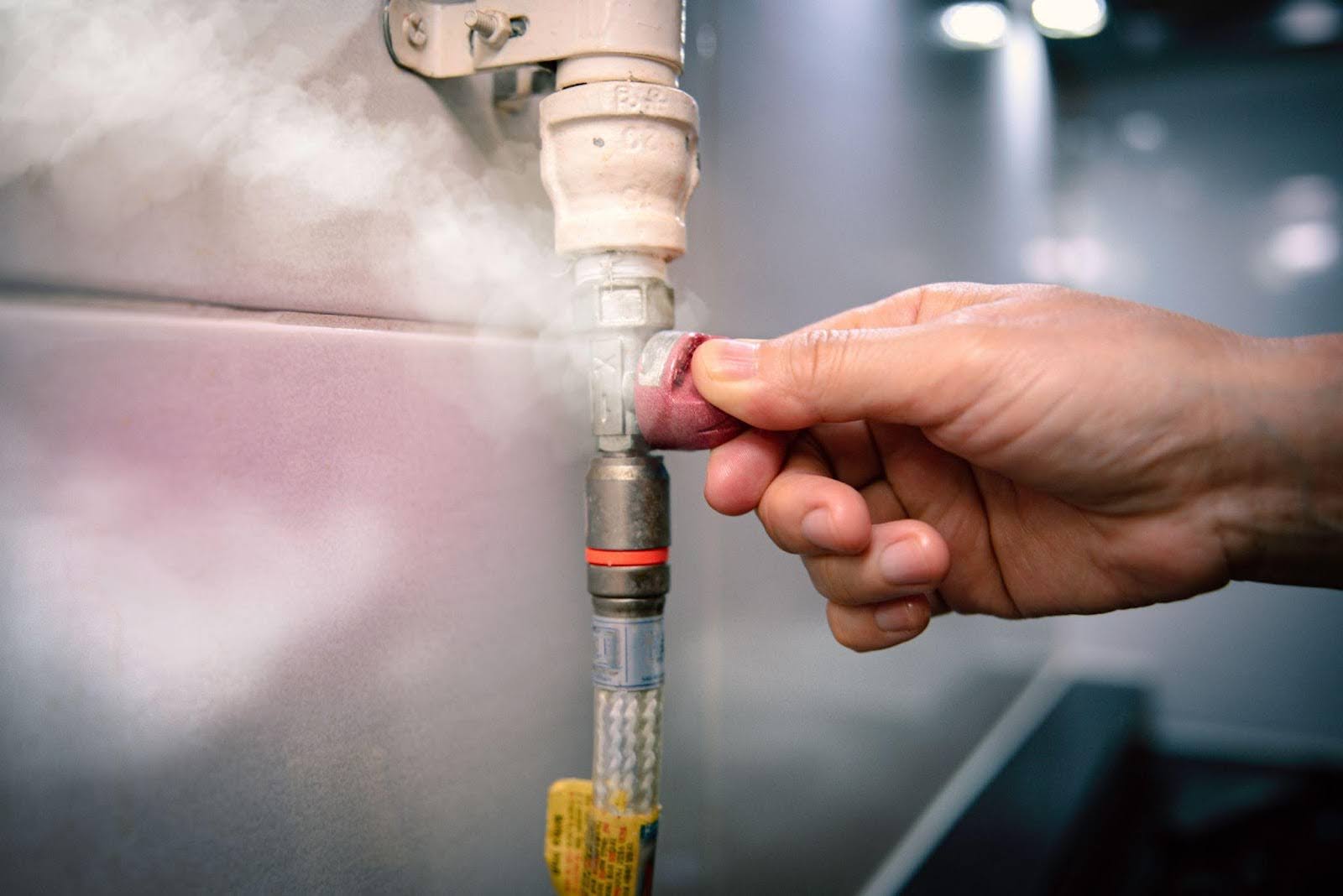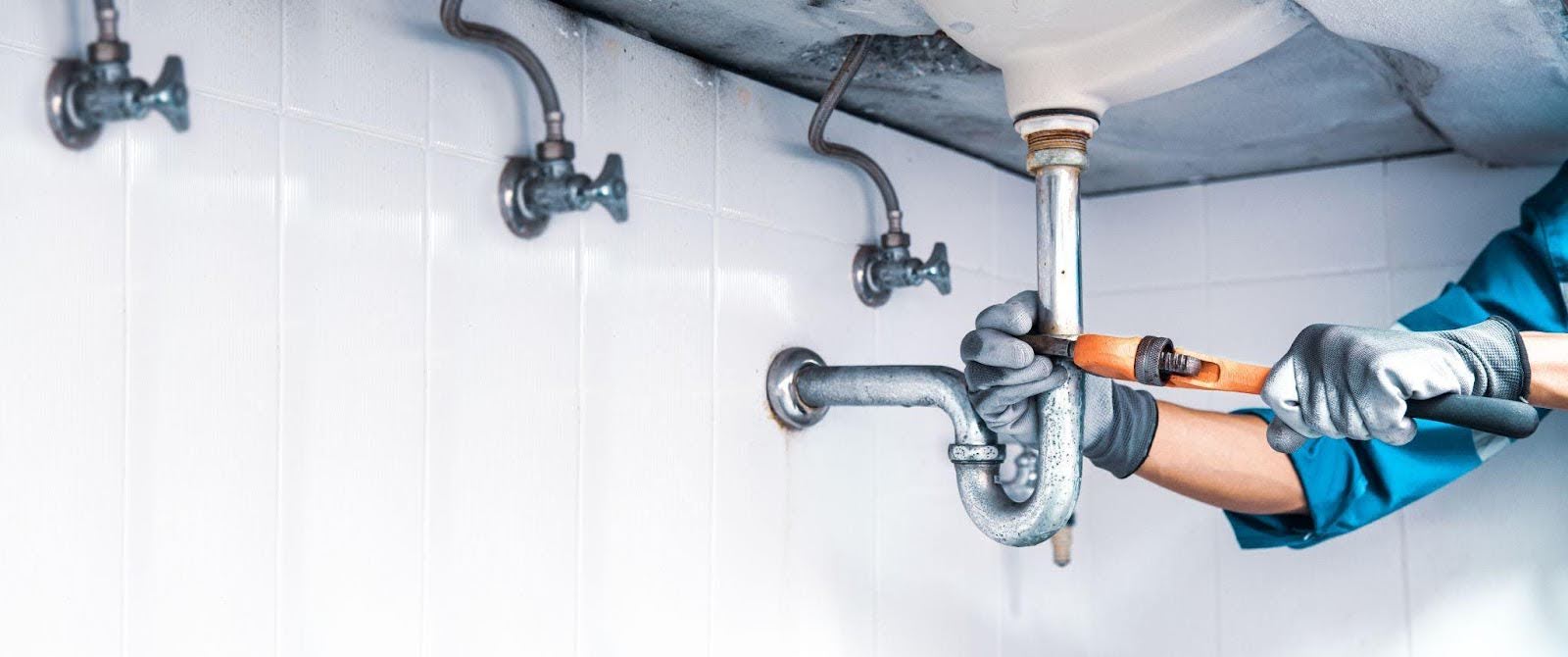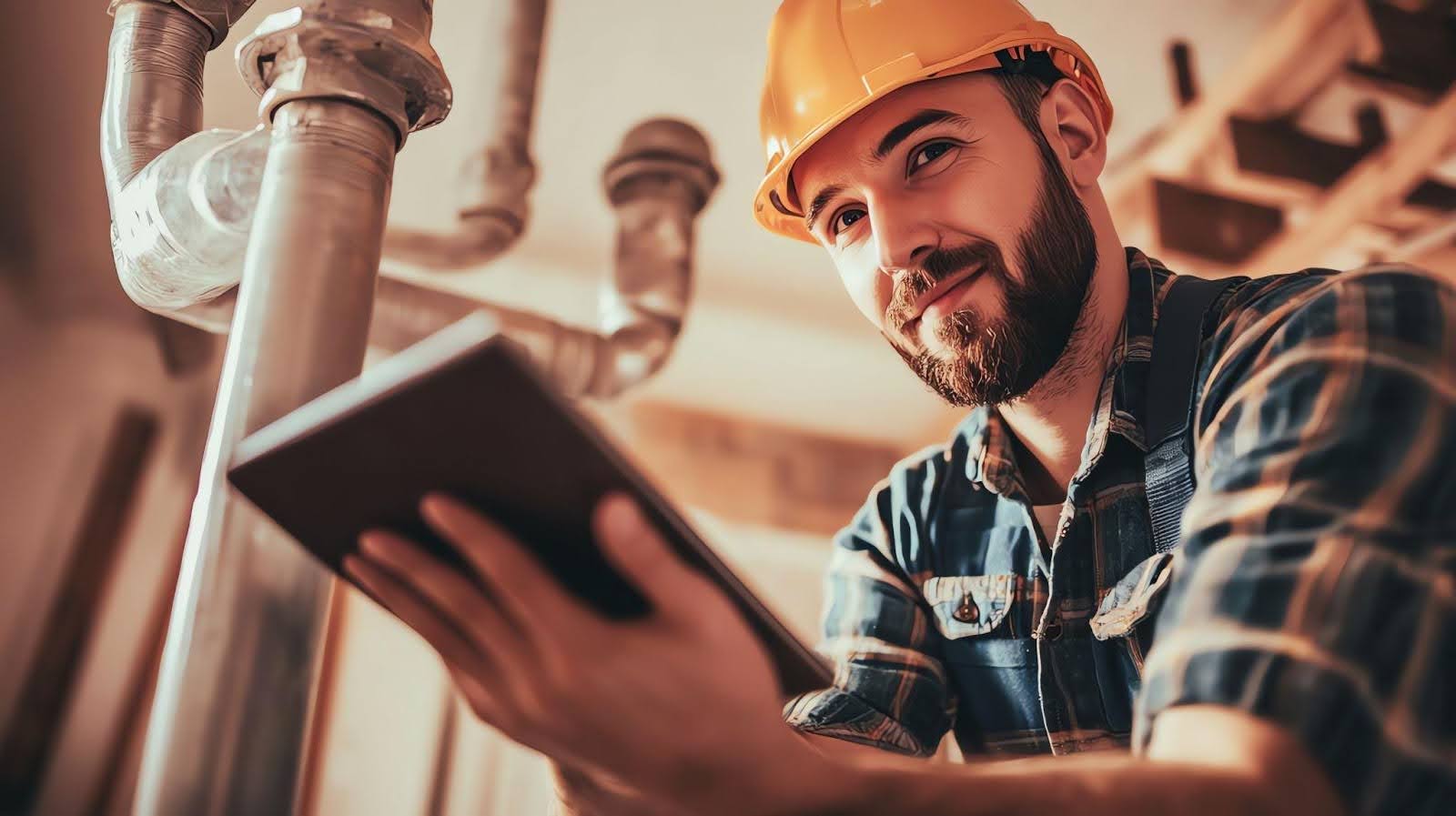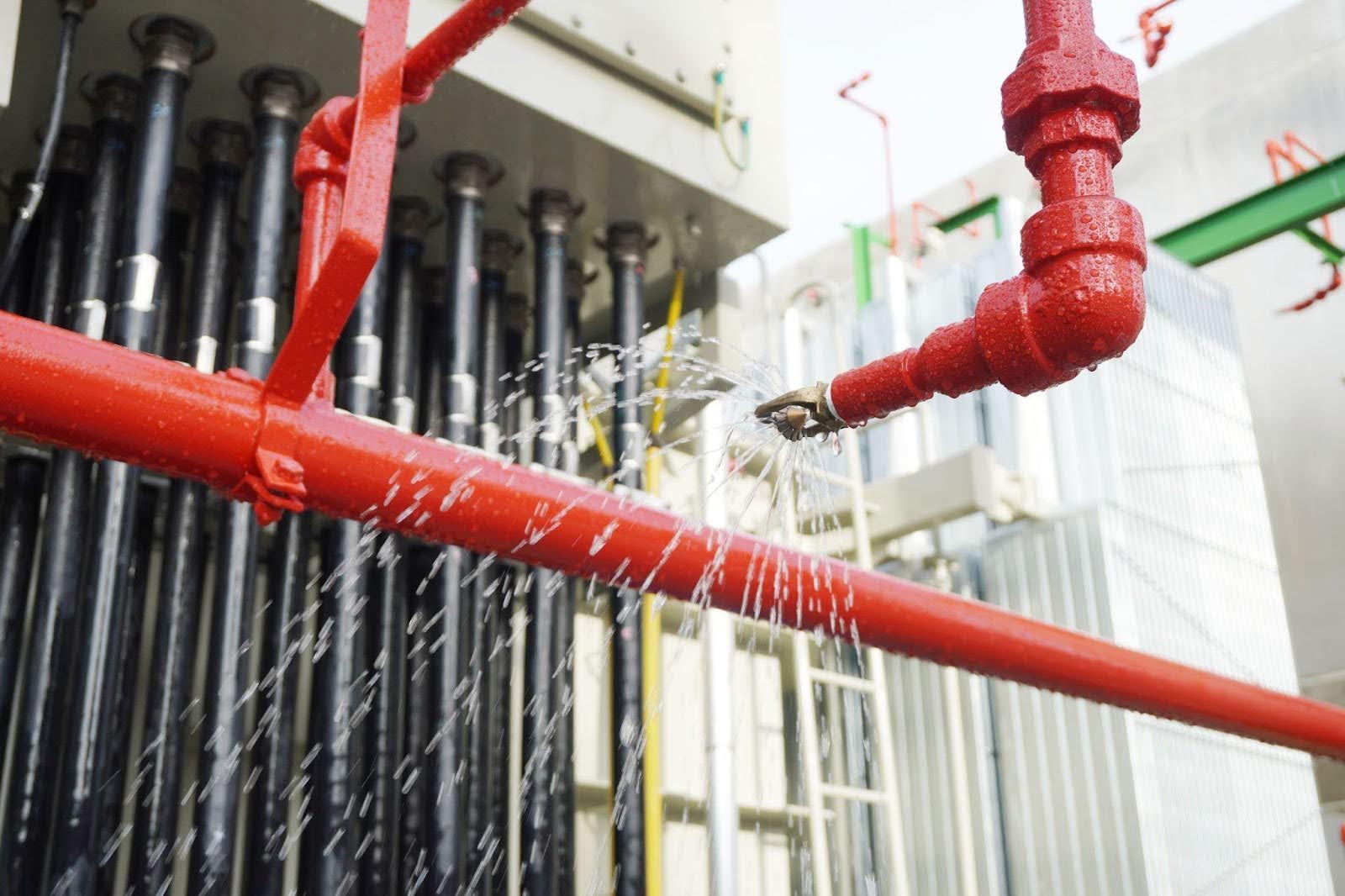An apartment construction project brings unique challenges, especially when it comes to plumbing. A sound plumbing system is the cornerstone of any multi-unit building’s functionality and comfort.
This blog explores how important plumbing is in your construction project. From choosing the right contractor to tackling common plumbing challenges, this guide offers valuable insights and practical advice.
We aim to equip you with the knowledge you need to ensure your building is up to standard and provides the utmost comfort and efficiency.
Role of plumbing in apartment construction
You need plumbing in any construction project — it is essential for basic amenities, complex system designs, water supply management, and even hot water. Let’s take a closer look at the role plumbing plays in construction.
Essential for basic amenities
Plumbing is central to providing some of the basic amenities of modern living — access to clean water and the safe disposal of waste and sewage. In apartment construction, you’ll need the plumbing system to efficiently serve all units, ensuring every resident has reliable access to these amenities.
Complex system design
Unlike single-family homes, apartment buildings require more complex plumbing systems. There are multiple units on different floors, and the system needs to accommodate all of their needs.
Plus, the design must ensure that everyone has enough water pressure and flow, regardless of what floor they live on.
Water supply management
Plumbing in apartment construction involves managing the water supply for hundreds of residents. Good water supply management includes ensuring sufficient water storage and pressure systems, particularly in high-rise buildings, to maintain consistent water flow at all levels.
Waste and drainage systems
The design of these systems often includes installing vertical stacks that effectively manage sewage and wastewater. Implementing proper venting systems is vital to prevent backflow and ensure the living environment remains hygienic and safe for all residents.
Hot water systems
Providing hot water to all apartment units is another water management aspect to consider. Two common ways to achieve this are to use centralized water heaters or individual ones in each unit. The choice impacts the plumbing design, energy efficiency, and cost implications for the building.
Complying with codes and regulations
Plumbing in apartment buildings must comply with local building codes and health and safety standards. These regulations govern pipe sizing, material use, installation methods, and environmental compliance. These regulations will affect your plumbing choices, so consider them as you design and build.
Coordinating with other construction processes
You’ll need to carefully coordinate plumbing installation with other construction processes. Doing this involves closely collaborating with architects, structural engineers, and electrical engineers to ensure the plumbing system integrates seamlessly with the building’s other systems and overall design and structure.

Benefits of involving plumbing contractors early on
Involving plumbing contractors early on offers several significant advantages.
Cost-effective solutions
Plumbing contractors provide crucial advice that saves money in the long run. They can help spot potential plumbing problems early, which helps prevent expensive changes and redesigns during later stages of the construction process.
Enhanced efficiency
Getting advice from plumbing experts early on leads to better-designed systems. They can plan the most efficient layouts for water supply and waste systems. This often leads to using fewer materials and less labor, which cuts costs. Plus, it results in a system that operates efficiently in the long run.
Complying with codes and standards
Plumbing contractors are well-versed in local building codes and standards for plumbing. Their early involvement ensures the plumbing system complies with these regulations from the start, minimizing the need for future changes.
Timely project completion
When you include plumbing contractors right from the start, the construction process tends to go more smoothly and with fewer stops. As mentioned above, they can help find plumbing problems before they become problems and give specialized advice based on their knowledge. Their unique expertise is a valuable voice to consider when putting a building project together.
High-quality workmanship
Early involvement allows plumbing contractors to select high-quality materials and ensures that plumbing is done correctly. It also gives them the time they need to build a quality plumbing system. These factors contribute to the plumbing system’s overall durability and reliability.
Risk management
Involving plumbing professionals early on helps identify and mitigate the risks associated with plumbing work. These include potential water damage, leaks, or issues with sewage systems. Identifying and addressing these concerns leads to a safer construction process and final build.
Bringing plumbing contractors into the early stages of apartment construction is a strategic decision that leads to better designs, cost savings, efficiency, and compliance while ensuring the project’s long-term success and sustainability.
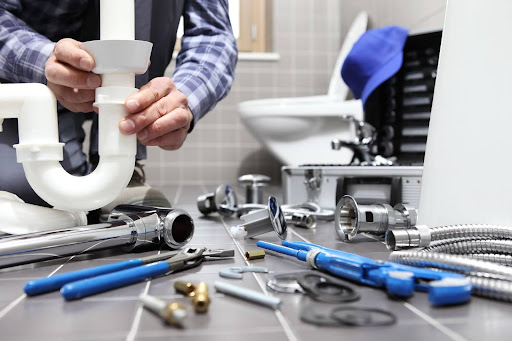
Selecting the right plumbing contractor
Selecting the right plumbing contractor for your apartment build is a critical decision that significantly impacts your project’s success and efficiency.
Check credentials and licensing
Ensure the contractor is licensed to work in your area. A licensed plumber will have the necessary training and qualifications to perform the work correctly and comply with local building codes.
Evaluate experience and specialization
Look for contractors with experience in apartment or multi-unit construction. This type of plumbing work is more complex than single-family residential plumbing, so you need a contractor who understands the intricacies of large-scale projects.
Review past projects and references
Ask for a portfolio of past projects that are similar to yours. Contact references from these projects and ask about the contractor’s quality of work, reliability, ability to stay on schedule and budget, communication, and problem-solving skills.
Assess their communication skills
Effective communication is crucial in construction projects. Choose a responsive contractor who listens to your needs and explains things clearly. Good communication will help ensure that your project runs smoothly.
Consider their availability
Make sure the contractor has the availability to commit to your project timeline. Delays in plumbing work can hold up other aspects of construction, so it’s important that they can start and complete the work according to your schedule.
Get multiple quotes
Obtain quotes from several contractors to compare prices. However, don’t make your decision based solely on price. Consider all factors, including the quality of materials, workmanship, and the contractor’s track record.
Look for professionalism and customer service
Choose a contractor who exhibits professionalism and strongly emphasizes customer service. Look for punctuality, keeping a clean work site, and respecting you and your property.
Check for insurance and warranties
Ensure the plumbing contractor carries the necessary insurance to protect against accidents or damage during the project. Also, ask about warranties or guarantees on their work.
Sustainability and efficiency practices
If environmental sustainability is a priority for your project, look for contractors who use energy-efficient materials and practices and have experience with green building standards.
Collaboration and teamwork ability
Since the plumbing contractor will need to work closely with other members of your construction team, assess their ability to collaborate and work as part of a team.
By carefully evaluating these aspects, you can select a plumbing contractor with the necessary technical skills and experience and who aligns with your apartment construction project’s specific needs and goals.
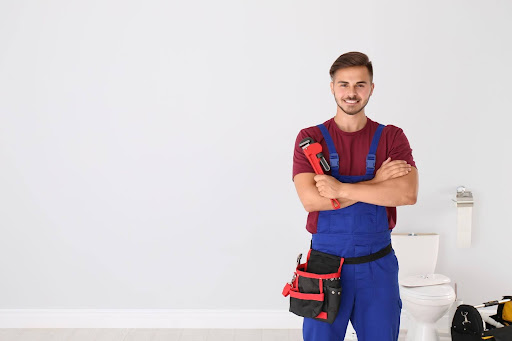
Integrating plumbing contractors into the planning process
Integrating plumbing contractors into your planning process is essential for a seamless, efficient build. Here’s how to effectively include them in the early stages:
1. Collaborative planning sessions
Include the plumbing contractors in regular planning meetings with architects, engineers, and other key stakeholders.
2. Clearly communicate project goals
Clearly communicate the project’s overall objectives, budget constraints, and timelines. Understanding the broader project goals helps them align their work and suggestions with your vision.
3. Review and feedback on initial plans
Encourage the plumbing contractor to review initial building plans and provide feedback, particularly regarding the feasibility of the proposed plumbing design, potential challenges, and optimization opportunities.
4. Site visits
Arrange for site visits so the plumbing contractor can get a hands-on understanding of the project layout, environmental conditions, and any existing structures or systems that may impact the plumbing work.
Incorporate plumbing needs into the design
Work with architects and engineers to integrate the plumbing contractor’s recommendations into the building design. These might include considerations for pipe routing, access points for future maintenance, and locations for major plumbing fixtures.
Utilize their expertise for compliance and efficiency
Leverage the plumbing contractor’s expertise to ensure compliance with local building codes and regulations. They can also provide valuable insights into water-saving technologies and efficient plumbing practices.
Feedback loop
Establish a feedback loop where the plumbing contractor regularly updates the team on the progress, challenges, or changes in the plumbing aspect of the project. This ensures that any issues are addressed promptly and do not impact the overall construction timeline.
Coordination with other contractors
Facilitate coordination between the plumbing contractor and other trade contractors, such as electricians and HVAC specialists. This coordination helps avoid conflicts and ensures a cohesive approach to the construction process.
Contingency planning
Work with the plumbing contractor to develop contingency plans for unforeseen issues related to plumbing. Having a plan in place ensures quick, effective resolution, minimizing delays.
By actively involving plumbing contractors in the planning process and maintaining open lines of communication, you ensure that the plumbing aspect of your apartment build is well-managed, efficient, and aligned with the overall construction plan.

Addressing common plumbing issues
Addressing common plumbing issues in apartment builds requires a strategic approach, given the complexity and scale of these projects. Here are key ways to effectively tackle these challenges:
1. Vertical stacking
In tall apartment buildings, bathrooms and kitchens are often built directly above and below each other. This is known as vertical stacking. This layout lines up the plumbing for the entire building, making it easier to install and maintain the pipes for water and waste. It’s important to plan this carefully so that the plumbing works well without disrupting the areas where people live.
2. Water pressure management
Make sure that water pressure is the same on all building floors. To achieve this, you might need to use special valves or pumps that control the pressure. Using booster pumps or tanks that use gravity on the higher floors in taller buildings can help keep the water pressure steady.
3. Noise reduction
Plumbing can be a source of noise, especially in densely populated apartments. Use insulating materials around pipes, and consider cast iron or specially designed PVC pipes for waste lines to reduce noise transmission.
4. Adequate ventilation
Proper venting is necessary to prevent water locks and ensure the smooth flow of waste. This includes planning for vent stacks that exit the roof and ensuring these vents are not obstructed.
5. Hot water delivery
Ensure that your hot water system can adequately meet the demands of all residents. Doing this might involve choosing between centralized large-capacity water heaters or individual units for each apartment. The choice affects both the plumbing design and energy efficiency.
6. Corrosion control
Consider implementing water softeners to reduce pipe corrosion in areas with hard water. Using corrosion-resistant materials for pipes can also prolong their lifespan.
7. Emergency shut-off valves
Install individual shut-off valves for each unit so you can turn off the water in one apartment without affecting the entire building. These are useful for managing repairs and emergencies.
Call Salisbury Plumbing today
When integrating plumbing into your building project, the right expertise makes all the difference. Remember, the success of your project hinges on the plans you lay out and on the professionals you choose to bring those plans to life.
Salisbury Plumbing stands ready to bring that expertise and precision to your project. With our experienced team, commitment to quality, and deep understanding of the complexities of apartment plumbing systems, we are here to ensure your construction meets the highest standards of efficiency and functionality.
Whether it’s consulting in the early stages or tackling the intricacies of installation, Salisbury Plumbing is your trusted partner. Don’t hesitate to contact us for all your plumbing needs, and take the first step towards a seamless and successful construction experience.
toto slot

